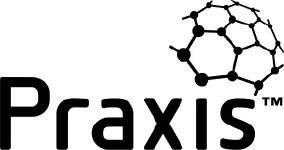
Praxis Framework Certification — Brisbane (Foundation & Practitioner)
Combine Praxis certification with our targeted Change Management course to deliver capability uplift across projects, programmes and portfolios in Queensland organisations.

Duration: Praxis Foundation (3 days) — Practitioner (2 days) — Change Management add-on (3 days).
Location: Brisbane CBD & Online (Live virtual classroom)
Book a seat — Next course: TBA
PM2Go Training — Brisbane, Queensland. Registered training provider & authorised Praxis course deliverer.
Why Praxis + Change Management?
The Praxis Framework is a fully integrated P3 framework that combines knowledge, method, competency and capability — enabling teams to apply practical governance, lifecycle and capability approaches to real projects. Pairing Praxis certification with our Change Management course ensures project deliverables are realised and organisational adoption is achieved — not just project closure.
Who should attend
- Current and aspiring Project Managers
- Current and aspiring Programme Managers
- Staff involved in designing or implementing project, programme, and portfolio delivery frameworks
- Project board members and Senior Responsible Owners (SROs)
- Change Managers
- Project and programme assurance staff
- PMO team members (Project, Programme or Portfolio Management Office)
- Project or programme team members
Praxis Framework training provides delegates with the knowledge and skills exceeding the Certificate IV Project Management required by many public sector organisations.
Course outcomes
- Apply Praxis lifecycle, governance and documentation in your projects
- Understand competency & capability models to uplift organisational performance
- Embed change management techniques to drive stakeholder adoption and benefits realisation
- Prepare for Praxis Foundation & Practitioner exams (APMG/official)
Compare: Praxis vs PMI PMP vs CAPM
Quick comparison to help choose the right pathway for your role & experience.
| Feature | Praxis Framework | PMP® (PMI) | CAPM® (PMI) |
|---|---|---|---|
| Scope | Integrated P3 guidance: knowledge, method, competency & capability. Practical templates & maturity models suitable for org-level uplift. | Global standard focused on PMP process groups, knowledge areas, leadership & delivery for experienced project managers. | Entry-level project management credential — knowledge-based, suited to those starting a PM career. |
| Best for | Organisations seeking a single taxonomy for projects, programmes & portfolios; practitioners wanting practical templates and capability frameworks. | Experienced practitioners who lead complex projects & want a role-based professional standard. | Junior staff or career-switchers seeking recognized PM credentials. |
| Exam style | Open-book applied exam at Practitioner; Foundation assesses knowledge. Certification pathway supports competence & CPD. | Closed-book (recent updates & scenario-based items), requires PDUs to maintain; experience pre-reqs apply. | Knowledge exam; lower experience requirement; pathway to PMP with experience accumulation. |
| Change Management | Praxis provides methods & tools that map to organisational capability and can be combined with a dedicated change management course for adoption success. | PMP emphasises leadership & stakeholder management; often paired with change approaches but less prescriptive on organisational capability models. | CAPM covers fundamentals; complementary change management training recommended. |
| Local relevance | Strong fit for Australian/Queensland organisations wanting integrated guidance & PRAXIS pathway recognition. | Globally recognized; strong employer recognition in Australia too. | Globally recognized entry credential. |
Note: Praxis is a practical, free framework resource with an accredited certification pathway; PMP & CAPM are PMI credentials with different eligibility and focus—choose based on experience level and organisational needs. See official sources for each cert.
Add our Change Management Course
Our one-day Change Management module teaches Kotter/Lewin-inspired adoption strategies, stakeholder influence mapping, and practical transition plans tailored to the Praxis governance model — meaning your project outputs become real business outcomes.
Frequently asked questions
- Is Praxis recognised in Australia?
- Yes — Praxis is endorsed by the Australian Institute of Project Management (AIPM). Our course is delivered in Brisbane and online.
- Which cert should I take first — Praxis or CAPM?
- For newcomers, CAPM gives PMI recognition, however there are extensive pre-requisites; Praxis Foundation has no prerequisites and is highly practical. If you want organisational capability and templates, Praxis Foundation is an excellent first step.
- Do you include exam support?
- Yes — classroom simulations, exam walkthroughs, sample questions and bridging sessions to help pass Foundation & Practitioner exams. Instructor-led bootcamp exam preparation is available online.
- Is this course suitable for beginners?
- Yes. The Praxis Framework Certification is designed for both new and experienced professionals who want to formalise or expand their knowledge.
- Do I need project management experience?
- While prior experience helps, there are no formal prerequisites. This makes it accessible for aspiring project professionals. Ongoing support is included through mentoring / coaching sessions.
- Who benefits the most from the Praxis Certification?
- Individuals and organisations benefit equally through the integrated framework which supports knowledge, method, competency and capability improvement. Growth and development for the individual, better outcomes for the organisation.
Update this section for Praxis
The Praxis Framework provides for a complete capability uplift in the individual and organisation. This enables project managers and organisations to identify areas for growth and improvement, preparing for advanced-level application and learning.
- Praxis Outcomes
- Implement appropriate risk management and governance
Praxis Framework ™ equips the learner with the skills and knowledge to set up and execute a project or programme in any industry, regardless of methodology used. Endorsed by the Australian Institute of Project Management, the Praxis Framework certification confirms generic knowledge for project management, as indicated by the Skills for the Information Age (SFIA) level 3, the progress towards development to level 7.
Duration: 3 days
Pre-requisites:
None.
Equivalency:
This course can be used as Recognition of Prior Learning (RPL) for the following courses –
BSB40920 Certificate IV in Project Management Practice
BSB50820 Diploma of Project Management
BSB60720 Advanced Diploma of Program Management
See below for syllabus:
Overview and Concepts of Praxis
Outline modules
Integrative Management Functions
The definition of Scrum
Scrum values
Scrum roles and purpose
Purpose of the 5 scrum events
Scrum artefacts and commitments
Manage Scope
AgilePM philosophy
The AgilePM approach to project constraints
AgilePM principles
Combining scrum with AgilePM
Manage the Schedule
9 Principles of Agile leadership
Stakeholders and the project team roles
Manage Finance
Collaboration definition
Communication definition
Effective collaboration and communication in the context of a project
Manage Risk
Defining and distinguishing between types of increment
The project lifecycle
Purpose, work and potential work-products associated with each of the project lifecycle phases
Manage Change
Key concepts and hierarchy of requirements, goals, backlogs, solutions, products and increments
Definition of a requirement
User stories and INVEST model
M.o.S.C.o.W. prioritisation techniques
Requirements throughout the project lifecycle
Estimating
Manage Resources
Planning concepts
Tracking and control concepts
Project Planning event
Integrating AgilePM and Scrum
Processes - Projects and Programmes
Integrated Risk Management
Dealing with uncertainty
Project Approach Questionnaire
Interpersonal Skills
Governance and empiricism
The Cone of Uncertainty (Barry Boehm diagram)
Financial governance
Regulatory compliance
Extending the foundational knowledge
Duration: 2 Days
Pre-requisites:
Praxis Framework Foundation exam
or
PRINCE2 Practitioner*
or
PMI PMP
*It is highly recommended to take the Praxis Foundation level.
Details of the core content is below:
Planning and Controlling the Work of the Project, Governance, Compliance and AgilePM Products
Be able to apply and tailor the relevant aspects of governance to a project scenario.
Specifically to:
- Apply AgilePM planning concepts appropriately to each phase of the project lifecycle
- Track progress and respond to change in context of the overall project, tranche and Sprint timeboxes
- Apply appropriate tailoring to the default Scrum development approach to enable multi–team project planning and dependency management
- Demonstrate control over development when using AgilePM and Scrum
- Assure regulatory compliance in an Agile project
- Explain how financial governance in an AgilePM project (with fixed time and cost and controlled scope) differs from traditional projects (with fixed scope and controlled time and cost)
Be able to identify, analyse and distinguish between appropriate and inappropriate application of governance to a project scenario. Specifically to analyse, with reasons:
- Whether AgilePM planning concepts have been appropriately applied in accordance with lifecycle phase objectives
- Whether tracking and control concepts have been appropriately applied in accordance with lifecycle phase objectives
- Analyse the effectiveness of the AgilePM project planning event and associated customization of the default Scrum approach in multi–team project planning and cross–team dependency management.
- Whether controls have been applied appropriately when using AgilePM and Scrum
- Analyse how regulatory compliance has been integrated with AgilePM approach and the impact it has had on overall agility
- Whether work–products related to regulatory compliance and financial governance have been applied appropriately throughout each of the project lifecycle phases
Designed for experienced PMP and PRINCE2 Practitioners.
Coming Soon
There’s exciting work happening in the background to bring you an interactive learning experience that goes beyond the normal video conferencing or classroom experience.
Praxis Framework Management Certification
Globally recognised qualification from APMG-International, an ISO accredited examining body specialising in qualifications for business professionals. The Praxis Framework examination is taken online.
Foundation level
- 75 simple, multiple choice questions
- 60 minutes
- Closed book
- Pass mark: 36 marks out of 75 (60%)
Practitioner Level
Pre-requisites: Praxis Framework foundation level exam or listed alternative
- 80 context-based, multiple choice questions
- 160 minutes
- Open book
- Pass mark: 40 marks out of 80 (50%)
Further learning:
All Dates and Times are listed in AEST (UTC +10) unless otherwise specified
Comparison Placeholder -span out to separate page
This section compares the content of Praxis Framework with PMP, CAPM, Cert IV PM, Dip. PM, PRINCE2, Google Project Management as the primary industry standards for the skills needed of project management. Chartered Professional from APM is considered higher knowledge and application. Masters and Graduate Certificate have been excluded due to the similarity and base knowledge from PMBoK (PMI PMP) [source: TGA training.gov.au 15th Aug 2025]
BSB50820 Dip of Project Management
BSB40920 Cert VI in Project Management Practice
Note: PMP and CAPM syllabus areas could not be authenticated.
PRINCE2 is based on 7th Edition
AgilePM is excluded from the comparison as it focuses on the method, not project management.
Sign up to receive our latest updates
Get in touch
Call us directly?
Address